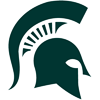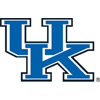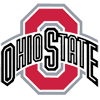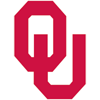Jim Matheson: Congressman of the year
Jim Matheson has voted with the Republicans just about each and every time they have voted on a bill dealing with ObamaCare the last several years, especially the last several months/weeks/days.
Then, he has the nerve to go and blames Republicans for the government shutdown coming tonight.
You know, the same Republicans he keeps voting with.
To Jim Matheson, that's called being a "moderate."
In reality, if Jim Matheson were a "moderate," he would use some of influence and seniority to work on a compromise. Or at least propose a compromise. After all, he has more seniority than 73% of Congress.
But that would mean the Congressman would have to work. And if you measure congressmen by their avoidance of work, Matheson would be Congressman of the year.
This is a man who votes with the same special interests that have tried for a decade to beat him. He won't hold a town hall meeting to meet with actual constituents.
So, Jim, I'm asking you again: Please, please stand up and propose a fix to this nation's problem. I might even throw in a campaign contribution. Heaven knows you need the money, since I've only gotten five emails this week asking for a donation to your campaign.
Of course, one of those five came from your mom, and two more were just "I hope you saw the email from Mom" resendings of the same email.
Hell, even your campaign is too lazy to write new material, just resending the same email a few times.
Maybe you are the Congressman of the Year,
Then, he has the nerve to go and blames Republicans for the government shutdown coming tonight.
You know, the same Republicans he keeps voting with.
To Jim Matheson, that's called being a "moderate."
In reality, if Jim Matheson were a "moderate," he would use some of influence and seniority to work on a compromise. Or at least propose a compromise. After all, he has more seniority than 73% of Congress.
But that would mean the Congressman would have to work. And if you measure congressmen by their avoidance of work, Matheson would be Congressman of the year.
This is a man who votes with the same special interests that have tried for a decade to beat him. He won't hold a town hall meeting to meet with actual constituents.
So, Jim, I'm asking you again: Please, please stand up and propose a fix to this nation's problem. I might even throw in a campaign contribution. Heaven knows you need the money, since I've only gotten five emails this week asking for a donation to your campaign.
Of course, one of those five came from your mom, and two more were just "I hope you saw the email from Mom" resendings of the same email.
Hell, even your campaign is too lazy to write new material, just resending the same email a few times.
Maybe you are the Congressman of the Year,
Shoe Try On & Order
Team Shoe Orders will be taken on Wednesday, September 25 from 6:30-7:00pm in Thiel Gym. This is for all girls freshmen thru senior planning to play basketball.
Players going out for basketball should come and try on shoes to get a proper size. We will place the order with our Nike team rep. The player will not have to pay for the shoe until after we have cuts and they are sure they make the team. After tryouts, if a player makes the team, they will bring their money for the shoe at that time.
The varsity team will be using the Nike HyperDunk which retails for around $130. Our price will be $99. Freshmen and sophomores can order this shoe or they can order the Nike HyperQuickness which will sell for $84.
Players going out for basketball should come and try on shoes to get a proper size. We will place the order with our Nike team rep. The player will not have to pay for the shoe until after we have cuts and they are sure they make the team. After tryouts, if a player makes the team, they will bring their money for the shoe at that time.
The varsity team will be using the Nike HyperDunk which retails for around $130. Our price will be $99. Freshmen and sophomores can order this shoe or they can order the Nike HyperQuickness which will sell for $84.
Streaks Shooting School
Streaks Girls Basketball
2013 Shooting School
When: Wed, October 16 7:00-8:30pm
Sun, October 20 4:30-6:00pm
Wed, October 23 7:00-8:30pm
Sun, October 27 4:30-6:00pm
Where: Thiel Gym at Galesburg High School
Who: Girls presently in grades 3 thru 8. Open to girls attending District #205 and all area schools.
What: Individual instruction on shooting the basektball. This will involve the basic fundamentals of shooting for both the beginner and the experienced player. Players will also work on offensive skills which will allow them to get their shot off. This is will be a great experience for players who want to play in the YMCA, City League, or try out for their junior teams.
We will work on offensive skills which will help girls be successful on the junior high level. Instruction will be given by
Coach Massey, the GHS staff, and high school players.
Cost: Before October 10- $30 ($15 for second child in family)
After October 10- $35 ($20 for second child in family)
Name__________________________________________________Phone________________________
Address________________________________________________City/Zip_______________________Email___________________________________
Grade In School___________ School Attend_____________________________________________
In and for the consideration of my daughter’s participation in the Streaks Academy, Streaks’ Camp and/or the Galesburg Summer League, I hereby agree and promise that I will not hold District #205, Streaks Camp, Galesburg Summer League, or the staffs responsible for any loss, damage, or personal injuries or illnesses that she may receive as a result of participation. In addition, I acknowledge I have insurance to cover medical expenses of my daughter. I grant permission for her to participate.
Parent or Guardian’s Signature ____________________________________
Phone during Camp Hours_____________
Return to: Coach Evan Massey, 1535 N.Prairie St., Galesburg, Illinois 61401. Make checks payable to Streaks Basketball. If you have any questions emass70@yahoo.com
Rating Top Men's College Coaches
Tom Izzo headlines our list of 30 coaches for 2012-13
Through the last two weeks, Athlon Sports ranked each coach in the ACC, Atlantic 10, Big 12, Big East, Big Ten, Pac-12 and SEC along with the top 20 coaches from outside those seven conferences.
The rankings presented a difficult task. The job of a college coach is multi-faceted. The best coaches in college basketball excel in a handful of areas -- recruiting, talent development, teaching and preparation, game-day tactics and motivation. The best coaches tend to be well-rounded, able to do handle all with equal skill.
Those were the factors we weighed in our conference-by-conference rankings, and that continues in our national rankings. We also examined each coach’s success in the regular season and the postseason. In many cases, we took into account what the coach has done with his current program in addition to previous stops in his career.
In addition to a coach’s track record, we asked ourselves: Which coaches would their peers prefer not to face. We’re also keeping an eye on the future. In short, can we expect these coaches to continue to produce similar or better results over the next five seasons or so?
All those factors led us to name Michigan State’s Tom Izzo the top coach in the country, as the best mix of all the aforementioned characteristics of a college basketball coach -- sustained success during the regular season against a high level of competition, advancing in the NCAA Tournament, recruiting players to fit his system, ability to teach and develop his roster.
Izzo does not struggle to find talented players to play in East Lansing, but he rarely grabs the elite NBA-ready talent that goes to Kentucky, North Carolina, Kansas or even Ohio State in his own conference. Just look at the rate of Spartans leaving early to the Draft, listed below. Despite this strategy, Michigan State often puts up equal or better results compared to programs churning through NBA lottery picks on a yearly basis
It’s a tough call to rank the best of the best, but here’s our best attempt:
Note: Coaches are ranked on a mix of past accomplishments with consideration for career trajectory over the next five seasons or so. Rankings take Xs and Os acumen and recruiting prowess into account along with success in the regular season and postseason.
 1. Tom Izzo, Michigan State
1. Tom Izzo, Michigan StateOverall record: 412-169 (37-14 in the NCAA Tournament)
Record at Michigan State: 412-169 (196-90 in the Big Ten)
Although the NBA has been interested in Izzo, it’s tough to imagine him coaching anywhere else. Izzo has his system at Michigan State down to a science. While we can’t say Michigan State overachieves -- the Spartans get their share of McDonald’s All-Americans and sends players to the NBA -- Izzo has a way of getting the most from his players. Only two Spartans have declared early for the NBA Draft in the last decade and none since 2006. Michigan State has continued a run of 15 consecutive NCAA Tournaments despite producing only one lottery pick since 2001 and no first round picks since 2006. Mike Krzyzewski and Roy Williams are the only active coaches with more trips to the Final Four than Izzo’s six.
 2. Mike Krzyzewski, Duke
2. Mike Krzyzewski, DukeOverall record: 927-291 (79-24 in the NCAA Tournament)
Record at Duke: 854-232 (336-149 ACC)
In 2011-12, Krzyzewski continued to add to his long list of achievements, surpassing mentor Bob Knight’s record of 902 Division I wins. The 65-year-old remains one of the game’s elite coaches despite changing times: He is 152-30 over the last five seasons, including 63-17 in the ACC. In the NCAA Tournament, he’s proven he can still win titles, as Duke did in 2010. Meanwhile, he continues to be the coach a handful of fans like to watch lose, as Duke did to 15th-seeded Lehigh in the 2012 Tournament. As always, Krzyzewski will continue to win his share of games. He remains in striking distance of the men’s collegiate wins record, held by Philadelphia University’s Herb Magee (941 wins and counting) and the all-time collegiate record, held by Tennessee’s Pat Summitt (1,098).
 3. John Calipari, Kentucky
3. John Calipari, KentuckyOverall record: 547-154 (38-13 in the NCAA Tournament)
Record at Kentucky: 102-14 (40-8 SEC)
Kentucky and John Calipari was the perfect marriage even before the 2012 national championship. Before then, the question was if Calipari would win a title at Kentucky with cycling through a roster of one-and-done players. With a team featuring six NBA draft picks, including the top two selections, Calipari answered. Now, the question seems to be how many titles Calipari could win at Kentucky -- provided he doesn’t dip is toe into the NBA again. Senior Night may be a bygone tradition for Calipari teams, but he’s suffered minimal drop-off from year to year. His 173 wins over the last five seasons at Kentucky and Memphis are more than any other coach in the country. Kansas’ Bill Self is No. 2 at 154.
 4. Bill Self, Kansas
4. Bill Self, KansasOverall record: 476-158 (33-13 in the NCAA Tournament)
Record at Kansas: 269-53 (124-24 Big 12)
Great players come and go in Lawrence, but Self is leading one of the most consistent winners in the country. Thomas Robinson replaces the Morris twins, the Morris twins replaced Sherron Collins and Cole Aldrich, Collins and Aldrich replaced Brandon Rush and Mario Chalmers. Despite the turnover, Kansas has won a share of the Big 12 in eight consecutive seasons, four consecutive outright titles and five of the last seven Big 12 Tournament titles. Self once had the stigma of losing early in March, but Kansas is 17-4 in the NCAA Tournament, including the 2008 title, in the last five seasons.
 5. Jim Boeheim, Syracuse
5. Jim Boeheim, SyracuseOverall record: 890-304 (48-28 in the NCAA Tournament)
Record at Syracuse: 890-304 (355-185 Big East)
At the start of the 2011-12 season, Bob Knight and Mike Krzyzewski were the only coaches with 900 Division I wins. Boeheim should join them early in 2012-13. Like Krzyzewski, Boeheim is winning at as good a rate as he did earlier in his career. Syracuse’s 34 wins last season was a record for Boeheim, topping 31 wins in 1986-87. The Orange’s 17-1 mark in the Big East was also his career best. Meanwhile, Syracuse has reached the Sweet 16 or better in three of the last four NCAA Tournaments. Still, Boeheim is seven seasons removed from his last Big East Tournament title and a decade removed since his last Final Four (and national championship). Even with Kris Joseph, Dion Waiters, Fab Melo and Scoop Jardine gone, Boeheim has plenty of talent on the roster in his final season the Big East, the only conference in which he’s coached.
 6. Rick Pitino, Louisville
6. Rick Pitino, LouisvilleOverall record: 627-230 (42-16 in the NCAA Tournament)
Record at Louisville: 275-106 (81-41 Big East)
Similar to the other active Hall of Fame coaches, Pitino keeps winning and keeps adding to his list of accomplishments. He and rival John Calipari remain the only coaches to take three teams to the Final Four. Last season, he joined Roy Williams as the only coaches to take two teams to multiple Final Fours. He’s accomplished this at Louisville without a consensus All-American in his tenure (he had three at Kentucky). Of course, there’s plenty of talent at Louisville. The 2012-13 season won’t be an exception as the Cardinals are likely to start the season in the top five.
 7. Roy Williams, North Carolina
7. Roy Williams, North CarolinaOverall record: 675-169 (61-20 in the NCAA Tournament)
Record at North Carolina: 257-68 (105-39 ACC)
Tobacco Road rival Krzyzewski has the overall series lead (15-11 and 12-10 since Williams landed in Chapel Hill), but Williams claimed four the last five outright ACC titles. Already an elite coach at Kansas from 1988-2003, Williams became a champion when he returned to North Carolina by winning the 2005 and 2009 titles. Williams-coached teams have missed the NCAA Tournament only twice in his career, his first year at Kansas and 2010 at North Carolina when the bulk of his title-winning roster went to the NBA. After back-to-back Elite Eight appearances, Williams again must restock after losing Tyler Zeller, Harrison Barnes, Kendall Marshall and John Henson to the NBA.
 8. Billy Donovan, Florida
8. Billy Donovan, FloridaOverall record: 421-178 (28-10 in the NCAA Tournament)
Record at Florida: 386-158 (160-96 SEC)
Donovan may not lead back-to-back teams to the national championship again, but he’s built a power at Florida that will outlast Al Horford, Joakim Noah, et al. The Gators returned to the Elite Eight the last two seasons, but both times Florida was denied a trip to the Final Four due to late-game collapses. With Patric Young and Kenny Boynton returning, Florida appears to be back among the most consistent programs in the SEC. Once Billy the Kid, Donovan is now the dean of SEC coaches and the most logical consistent foil for Calipari and Kentucky in the conference.
 9. Bo Ryan, Wisconsin
9. Bo Ryan, WisconsinOverall record: 298-128 (16-11 in the NCAA Tournament)
Record at Wisconsin: 268-101 (132-54 Big Ten)
First, we should note the above record does not include Ryan’s 353 wins and four national championships at Division III Wisconsin-Platteville. Before Ryan arrived in Madison, Wisconsin already started to build itself into a respectable program under Dick Bennett. With his swing offense, Ryan took the next step. Under Ryan, the Badgers have never missed the NCAA Tournament and never finished lower than fourth in the Big Ten in 11 seasons. Ryan (71.0) and Bob Knight (70.0) are the only coaches to spend 10 seasons in the Big Ten and win 70 percent of their conference games.
 10. Brad Stevens, Butler
10. Brad Stevens, ButlerOverall record: 139-40 (11-4 in the NCAA Tournament)
Record at Butler: 139-40 (73-17 Horizon)
By reaching two national championship games, Stevens elevated Butler from plucky mid-major to a national brand. Beyond the NCAA Tournament, no coach has won more games in his first five seasons. The 35-year-old Stevens spurned an opportunity to coach Illinois to bring Butler from the Horizon the tougher Atlantic 10.
 11. Mike Montgomery, Cal
11. Mike Montgomery, CalOverall record: 634-292 (17-15 in the NCAA Tournament)
Record at Cal: 88-47 (47-25 Pac-10/12)
Montgomery and Cal may be the only ones looking rosy in this era of futility for Pac-10/12 basketball. No, the Bears haven’t had any great teams in Montgomery’s four seasons, never topping 24 wins or 13 conference wins. Still, relative to its recent history, Cal is doing just fine. Predecessor Ben Braun took Cal to the Tournament five times in 12 seasons. Montgomery has been three times in four seasons in Berkeley. Even when the Pac-10 was held in higher regard, Montgomery was on top of his game. In his final eight season at Stanford from 1996-2004, the Cardinal went 117-28 in the Pac-10 and never finished lower than second in the league. Cal has good reason to hope some of those results are on the way.
 12. Shaka Smart, VCU
12. Shaka Smart, VCUOverall record: 84-28 (6-2 in the NCAA Tournament)
Record at VCU: 84-28 (38-16 Colonial)
Beyond moving into the A-10 at the same time, Stevens and Smart have a handful of parallels in their careers. Both took over at mid-majors accustomed to success and elevated their profiles in short order -- Stevens took Butler to the Final Four in his third season, Smart did the same for VCU in his second, losing to Stevens’ Bulldogs. Smart has only five fewer wins through his first three seasons (84) than Stevens did in his first three (89).
 13. Jamie Dixon, Pittsburgh
13. Jamie Dixon, PittsburghOverall record: 238-77 (11-8 in the NCAA Tournament)
Record at Pittsburgh: 238-77 (103-51 Big East)
Dixon’s teams often have been lauded as overachievers, but he finally had a season where nothing seemed to go right in 2012-13. The Panthers went 5-13 in the Big East as Dixon missed the NCAA Tournament for the first time in his nine-year head coaching career. Still, one bad season in nine (or 11, going back to the end of the Ben Howland tenure) is something Pitt will take after long stretches of irrelevance.
 14. Thad Matta, Ohio State
14. Thad Matta, Ohio StateOverall record: 323-96 (20-10 in the NCAA Tournament)
Record at Ohio State: 221-65 (98-40 Big Ten)
A national title is the only achievement missing from Matta’s resume. Perhaps it’s just a matter of time. Under Matta, Ohio State has won at least a share of the Big Ten regular-season title in five of the last seven seasons. He’s won 76.5 percent of his games in the Big Ten Tournament (16-5, three titles), the highest in conference history. And while the Big Ten has been lackluster compared to the other major conference in the NBA Draft in recent years, that hasn’t been the case at Ohio State. The Buckeyes are responsible for seven of the Big Ten’s 12 first-round picks since 2007. Unfortunately for Matta, this has led to a handful of one-and-dones (Greg Oden, Mike Conley, Kosta Koufos,B.J. Mullens) and a two-and-done (Jared Sullinger).
 15. Sean Miller, Arizona
15. Sean Miller, ArizonaOverall record: 189-82 (9-5 in the NCAA Tournament)
Record at Arizona: 69-35 (36-18 Pac-10/12)
Miller’s coaching pedigree is unquestioned. He’s the son of a legendary Pennsylvania high school basketball coach. And once Miller became a coach himself, he followed in a successful tradition of Xavier coaches, succeeding Thad Matta, Skip Prosser and Pete Gillen. After the tumultuous end of Lute Olson’s tenure, which included two seasons of interim coaches, Miller has Arizona back on course. Sure, Arizona missed the Tournament last season, but the Wildcats’ 53 wins over the last two seasons (including the 2011 Elite Eight) is the most in Tucson since 1999-2000 and 2000-01. Reaching the Final Four, as the Wildcats did in 2001, will be a tall task, but a top-five signing class means a return to the national elite is on the horizon.
 16. Bob Huggins, West Virginia
16. Bob Huggins, West VirginiaOverall record: 638-242 (27-20 in the NCAA Tournament)
Record at West Virginia: 120-56 (52-29 Big East)
Huggins’ 2011-12 season was a good lesson in perspective. The Mountaineers went 19-14, including 9-9 in the Big East and reached the NCAA Tournament for the fifth consecutive season. For some programs, that’s a success. For Huggins, it was one of the worst seasons of his career. The .500 conference record was the first time Huggins failed to post a winning conference record since his first season at Akron in 1984-85. It was only the fourth time in his 27 years in Division I he failed to win 20 games. His 710 career wins, including 71 in the NAIA, are the most among active coaches without a national championship.
 17. Tom Crean, Indiana
17. Tom Crean, IndianaOverall record: 245-171 (7-6 in the NCAA Tournament)
Record at Indiana: 55-74 (19-53 Big Ten)
The former Tom Izzo assistant assumed one of the toughest rebuilding projects at a top-10 program perhaps since Rick Pitino landed at Kentucky. Crean took over an IU program reeling from sanctions and a roster reconstruction left over from the Kelvin Sampson era. The results came to fruition in 2011-12. In Crean’s first three seasons in Bloomington, Indiana won 28 overall games and eight Big Ten games. Last season alone, the Hoosiers won 27 games and 11 in conference. Crean already led Marquette to a Final Four, which might be the next step for an Indiana program likely to open the season near the top of the polls.
 18. John Beilein, Michigan
18. John Beilein, MichiganOverall record: 384-252 (8-7 in the NCAA Tournament)
Record at Michigan: 91-77 (43-47 Big Ten)
Beilein factoid No. 1: He’s the only active coach with a 20-win season in junior college, NAIA, Division II and Division I. Beilein factoid No. 2: He’s never been an assistant coach. Beilein factoid No. 3: He’s one of eight coaches and four active coaches to take four teams to the NCAA Tournament (Canisius, Richmond, West Virginia, Michigan). At each of those stops, Beilein pulled the program out of an extended rough patch. While he doesn’t have a national championship like Izzo, an extended track Big Ten track record like Ryan, and Final Fours like Matta and Crean, an argument could be made he deserves to be at or near the top of any Big Ten coach rankings.
 19. Mark Few, Gonzaga
19. Mark Few, GonzagaOverall record: 342-90 (14-13 in the NCAA Tournament)
Record at Gonzaga: 342-90 (162-22 West Coast Conference)
The gap between Gonzaga and the rest of the WCC has narrowed in recent seasons, but Few still has Gonzaga as one of the nation’s consistent programs. Last season was the first time under Few the Bulldogs failed to win at least a share of the regular-season WCC title or a tournament title. Gonzaga still went 26-7 and reached the NCAA Tournament.
 20. Buzz Williams, Marquette
20. Buzz Williams, MarquetteOverall record: 110-62 (5-4 in the NCAA Tournament)
Record at Marquette: 96-45 (46-26 Big East)
How could Williams be ranked ahead of more accomplished coaches Jim Calhoun, Jay Wright, John Thompson III and Steve Lavin? We expect the 39-year-old Williams to be headed for a standout career. There’s good reason Oklahoma and Arkansas pursued him for recent vacancies. Williams is a little quirky -- his skill for producing numbers, statistics and minute details on demand is well-established. Also consider this: Marquette is the only Big East team to reach the NCAA Tournament every year since the league reorganized in 2005-06 -- Williams is responsible for four of those trips, predecessor Tom Crean for three. Williams has done this without some of the inherent advantages of other Big East programs.
 21. Mike Brey, Notre Dame
21. Mike Brey, Notre DameOverall record: 359-184 (6-10 in the NCAA Tournament)
Record at Notre Dame: 260-132 (124-75 Big East)
Another overachiever in a powerhouse basketball league, Brey has won three of the last six Big East Coach of the Year awards (2007, 2008 and 2011). He had a compelling case to pick up a fourth last season when the Irish, picked ninth in the league, finished 13-5 and in third place without top player Tim Abromaitis. Brey has led Notre Dame to the NCAA Tournament in five of the last six seasons and to 20 wins every year since 2006-07.
 22. Jim Calhoun, Connecticut
22. Jim Calhoun, ConnecticutOverall record: 873-380 (51-20 in the NCAA Tournament)
Record at Connecticut: 625-243 (276-163 BIg East)
Calhoun’s achievements are enviable -- the three national titles, four Final Fours, the sixth-most all-time wins, six Big East tournament titles -- but questions are creeping into his program. Due to Academic Progress Rate sanctions, UConn is the only major program ineligible for the NCAA Tournament in 2012-13. The Huskies also are three seasons removed from their last winning record in the Big East, albeit UConn won the national championship and Big East tournament in 2010-11. Last season, Calhoun missed 11 games due to NCAA and health issues. Questions about his retirement, perhaps as early as this season, abound, though he says he will be back for 2012-13.
 22. Ben Howland, UCLA
22. Ben Howland, UCLAOverall record: 374-198 (19-9 in the NCAA Tournament)
Record at UCLA: 208-97 (106-54 Pac-10/12)
Third in the Pac-12 may be unthinkable for a coach who reached three consecutive Final Fours and put Pittsburgh basketball on the map all in a seven-year span. But the Bruins have fallen apart in the last three seasons, going 32-22 in a lackluster Pac-10/12 and losing non-conference games to the likes of Cal State Fullerton, Portland, Montana, Loyola Marymount and Middle Tennessee in a three-year span. The culprit has been an exodus of early entries (Jrue Holiday), transfers (Mike Moser, Drew Gordon, J’Mison Morgan) and dismissals (Reeves Nelson) that all but wiped out two recruiting classes. With freshmen Shabazz Muhammad, Kyle Anderson and Tony Parker arriving on campus, Howland needs to rediscover the magic from earlier in his tenure.
 24. Matt Painter, Purdue
24. Matt Painter, PurdueOverall record: 185-82 (8-7 in the NCAA Tournament)
Record at Purdue: 160-77 (76-46 Big Ten)
Purdue fans will play the game of hypotheticals over the health of Robbie Hummel, who missed the 2010 postseason and all of 2010-11. Painter may be forgiven to wonder what may could have been if the trio of Hummel, JaJuan Johnson and E’Twaun Moore would have remained intact for a full four seasons. Despite a dose of bad luck, Purdue managed to win at least 25 games each season from 2007-11, went 78-26 in the Big Ten the last five seasons and reached the Sweet 16 in 2009 and 2010. Remember, Purdue won nine games overall in his first season and seven the season before he arrived.
 25. Kevin Stallings, Vanderbilt
25. Kevin Stallings, VanderbiltOverall record: 384-222 (6-8 in the NCAA Tournament)
Record at Vanderbilt: 261-159 (103-105 SEC)
Stallings’ losing record in the SEC may come as something of a surprise, but most of the losing took place early in his tenure in Nashville. Since 2006-07, the Commodores are 59-37 in the conference. Wins in March have been lacking during that timespan -- the ‘Dores have three wins in the last five NCAA trips and have been upset by Richmond (2011), Murray State (2010) and Siena (2008). Still, Vanderbilt’s not an easy basketball job, especially when programs like Kentucky and Florida are performing at an elite level. But Stallings has been able to develop veterans like Jeffery Taylor and John Jenkins, both of whom were major recruits, while unearthing difference-makers like Festus Ezeli.
 26. Frank Martin, South Carolina
26. Frank Martin, South CarolinaOverall record: 117-54 (6-4 in the NCAA Tournament)
Record at South Carolina: first season
He has a fiery demeanor. He’s prone to shouting and staredowns on the sidelines. And cynics might say he got his first head coaching job only to hold together a Michael Beasley-led recruiting class at Kansas State. All may be true, but Martin can coach. Kansas State hadn’t had a five-year run in both the regular season and postseason since the late 1970s. Martin led Kansas State to at least 10 wins in the Big 12 in four out of five seasons and has never failed to advance in the NCAA Tournament. He inherits a dreadful team at South Carolina, so his record is going to suffer. Considering the results at Kansas State, Martin should have the Gamecocks competing for the postseason in a matter of years.
 27. Rick Barnes, Texas
27. Rick Barnes, TexasOverall record: 544-271 (20-20 in the NCAA Tournament)
Record at Texas: 342-137 (158-63 Big 12)
The Barnes’ era can be confounding, but it’s at least consistent. Since 2004-05, Texas has had eight players drafted in the first round, including four lottery picks. But the Longhorns reached the Sweet 16 only twice in eight years. In addition, Texas hasn’t won an outright Big 12 title since 1998-99 and has never won the Big 12 Tournament. That said, Texas never struggles to bring in talent nor struggles to get to the NCAA Tournament. Barnes’ 17 consecutive Tournament appearances is tied with Mike Krzyzewski for the longest active streak and is six short of the all-time record held by Dean Smith.
 28. Lon Kruger, Oklahoma
28. Lon Kruger, OklahomaOverall record: 494-320 (14-13 in the NCAA Tournament)
Record at Oklahoma: 15-16 (5-13 BIg 12)
After facing NCAA sanctions under two coaching staffs, Oklahoma made the astute hire in Kruger. Although he’s rarely mentioned as one of the game’s elite coaches, he’s one of the nation’s best rebuilders. He revived troubled programs at Kansas State, Florida, Illinois and UNLV before landing at Oklahoma. If Kruger can navigate recruiting sanctions at Oklahoma, he could be the first coach to lead five different teams to the NCAA Tournament.
 29. Rick Majerus, Saint Louis
29. Rick Majerus, Saint LouisOverall record: 517-216 (19-13 in the NCAA Tournament)
Record at Saint Louis: 96-69 (44-36 A-10)
The longtime Utah coach returned to the bench at Saint Louis in 2007-08 after three seasons out of coaching. Despite injuries and suspensions at Saint Louis, Majerus has proven he hasn’t lost his touch, leading the Billikens to their first NCAA Tournament berth since 2000.
 30. Leonard Hamilton, Florida State
30. Leonard Hamilton, Florida StateOverall record: 401-337 (6-7 in the NCAA Tournament)
Record at Florida State: 201-127 (80-80 ACC)
Leading one of the stingiest defensive teams in the country, Hamilton has coached Florida State to one of the best four-year runs at Florida State. For the first time in program history, the Seminoles won at least 20 games and at least 10 ACC games in four consecutive seasons. A one-point loss in overtime to VCU in 2011 prevented the Seminoles from reaching the Elite Eight. Although Florida State failed to reach the second weekend of the NCAA Tournament last year, the Seminoles became only the second team not named Duke or North Carolina to win the ACC Tournament since 1996. Hamilton has proven himself capable of building consistent basketball programs at football schools by leading Miami to three consecutive NCAA Tournament appearances to wrap up his 10-season tenure with the Hurricanes in 2000.
The Lessons From the Past 12 Years
Today marks the 12th anniversary of That Day.
The day we are told to "Never Forget."
As if we could forget the images burned into our brains.
But, as we look back on that day I want us to remember a lesson that we learned from that day:
"The enemy of our enemy is not our friend."
You see, the perpetrators of that attack became what they became with the help of the United States Government, because they were fighting against our enemy, the Soviets.
So, because of the attacks, we were in a long, drawn out war against an army using mostly the same weapons we gave them. The war would have been much shorter, except our military's attention was drawn into another conflict. This time, against another former "enemy of our enemy," Iraq. In 2003, we thought that Iraq probably had weapons of mass destruction, other than those we sold it when they were fighting against another one of our enemies: Iran. So, we also spent a long, long time fighting a war, only to discover that they didn't have the weapons we said they had. oops.
Now, we stand on the brink of another war. We are told that this one would be quick. Yet, that's what we've been told before.
We've not yet been told how not engaging puts our lives in danger.
What we have now in Syria is a civil war -- a civil war with no clear-cut good guys, only bad guys. On one hand, you have the long-time dictator, who may or may not have gassed some of his own people, including children. Forget all the civilians, including children, who have died in this war so far -- these kids were gassed! So, we're going to help the rebels. They are aligned with Al Qaeda.
You know, that group that attacked us 12 years ago.
Because the enemy of our enemy is obviously our friend. Or not.
I don't see any scenario where engaging in this conflict makes us any safer. Nor do I see where staying out of this conflict makes us less safe. But, I can see were our involvement will make the world a much, much more dangerous place.
And that is why I am opposed to choosing sides in Syria -- because I can never forget those images burned into my brain from 12 years ago.
The day we are told to "Never Forget."
As if we could forget the images burned into our brains.
But, as we look back on that day I want us to remember a lesson that we learned from that day:
"The enemy of our enemy is not our friend."
You see, the perpetrators of that attack became what they became with the help of the United States Government, because they were fighting against our enemy, the Soviets.
So, because of the attacks, we were in a long, drawn out war against an army using mostly the same weapons we gave them. The war would have been much shorter, except our military's attention was drawn into another conflict. This time, against another former "enemy of our enemy," Iraq. In 2003, we thought that Iraq probably had weapons of mass destruction, other than those we sold it when they were fighting against another one of our enemies: Iran. So, we also spent a long, long time fighting a war, only to discover that they didn't have the weapons we said they had. oops.
Now, we stand on the brink of another war. We are told that this one would be quick. Yet, that's what we've been told before.
We've not yet been told how not engaging puts our lives in danger.
What we have now in Syria is a civil war -- a civil war with no clear-cut good guys, only bad guys. On one hand, you have the long-time dictator, who may or may not have gassed some of his own people, including children. Forget all the civilians, including children, who have died in this war so far -- these kids were gassed! So, we're going to help the rebels. They are aligned with Al Qaeda.
You know, that group that attacked us 12 years ago.
Because the enemy of our enemy is obviously our friend. Or not.
I don't see any scenario where engaging in this conflict makes us any safer. Nor do I see where staying out of this conflict makes us less safe. But, I can see were our involvement will make the world a much, much more dangerous place.
And that is why I am opposed to choosing sides in Syria -- because I can never forget those images burned into my brain from 12 years ago.
"Old school" people say high school athletics have changed, it all about recruiting and transfers, not about communities anymore. Others say it is just old coaches complaining and not keeping up with the times. Read this article from the Sun- Times.... critics are saying there are 8 transfers going to Homewood-Flossmoor, the coach responds it is only "like 5 or 6." If this happened at Rock Island, Moline, Alleman or Galesburg--- what would the IHSA do???
Do you want to give new Homewood-Flossmoor girls basketball coach Anthony Smith a good laugh? Ask him about the eight transfer students rumored to be practicing in his gym this summer.
‘‘Eight? Ha, ha, ha!’’ Smith said. ‘‘You got more than I heard. I heard it was more like five or six. .??
‘‘There have been a lot of inquiries about that, but I know that H-F does a thorough job of checking all of that out. I know that we have one, for sure, who is in school and just took a placement test.’’
The one is junior-to-be Faith Suggs, who was one of Plainfield East’s leading scorers as a sophomore. Otherwise, Smith said, anybody from another school who was spied by curious onlookers was, to his knowledge, simply taking advantage of an open gym.
Smith said his new program at H-F has been a work in progress. There was no organized summer-league schedule and no traveling as an actual Vikings team. He does, however, have a very clear plan.
‘‘We are going to put our work
ethic up against anybody in the country, not just the state of Illinois,’’ he said. ‘‘We are going to maximize our potential. It’s what I do.’’
ethic up against anybody in the country, not just the state of Illinois,’’ he said. ‘‘We are going to maximize our potential. It’s what I do.’’
His record stands for itself. In his 12 years at Bolingbrook, Smith won four state titles and produced nine consecutive sectional champions.
During that time, his program was a magnet for the best players in Bolingbrook and for others who managed to find their way to the district and be a part of a program that was well-known throughout the country.
Smith has his share of detractors, including some fellow coaches who question his ethics. But he makes no apologies for being someone for whom kids want to play.
‘‘I don’t know what it is, but kids do enjoy playing for me,’’ he said. ‘‘They do enjoy being pushed. I am available 24/7 to those kids, and the kids and their families do appreciate that and work hard for me.
‘‘If a kid wants to play for me, I’m happy to have them, as long as they are doing it correctly. If other coaches don’t like that, I understand, but I’m not going to change being me just because someone doesn’t like it.’’
Smith said he’s more excited about adding current H-F students to a roster that features more than a half-dozen returnees, including Ashley Johnson and Jaiveonna Norris.
‘‘We had a couple of kids who didn’t play basketball last year [6-3 senior center Kandace Tate and 5-9 senior forward/guard Kelsey Chandler] who I’m looking forward to working with,’’ he said. ‘‘When I saw them [at camp], I thought they might be transfers, too. But they told me, ‘No, we’ve been here, we just didn’t play last season.’ I was like, ‘Holy cow. Anybody else in the hallways?’ I’ll have to look in the hallways and see if there are more of ’em. Those two are going to help us out.’’
Meanwhile, past and present blended together in June, when Morgan Tuck and Nia Moore — two of Smith’s former stars from Bolingbrook — came to H-F and worked out with the kids who were there.
Smith certainly won’t be a forgotten coach in Bolingbrook history.
‘‘It was home,’’ Smith said. ‘‘I went to high school there, grew up there. I knew everyone there. The mayor there [Roger Claar], he was a girls basketball fan, and he loved it and supported it.
‘‘We turned Bolingbrook into a girls basketball town. We competed with the football program. Everybody knew that was the place to be at. We had it going there.’’
Subscribe to:
Comments (Atom)









